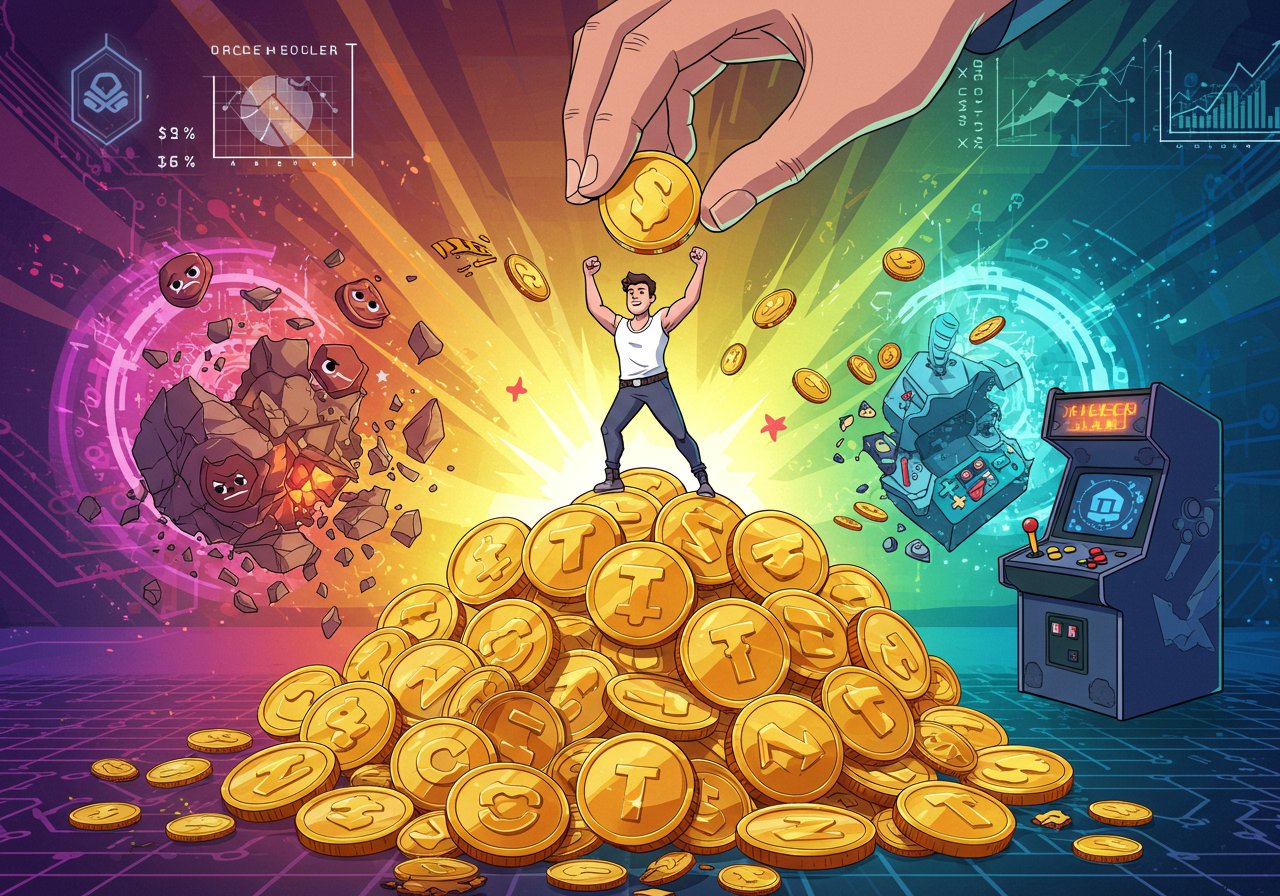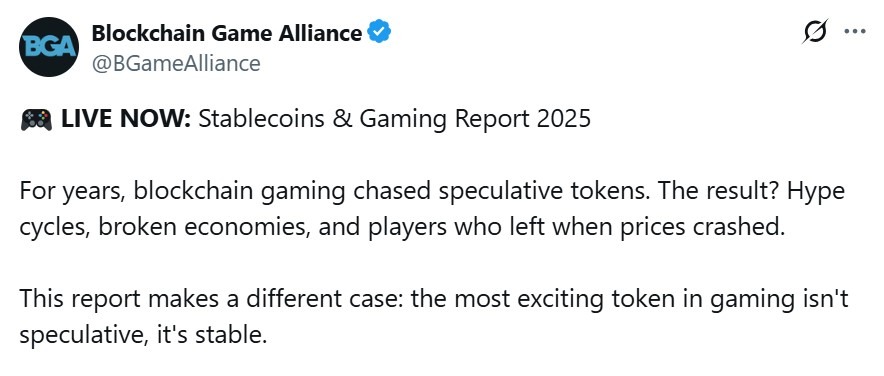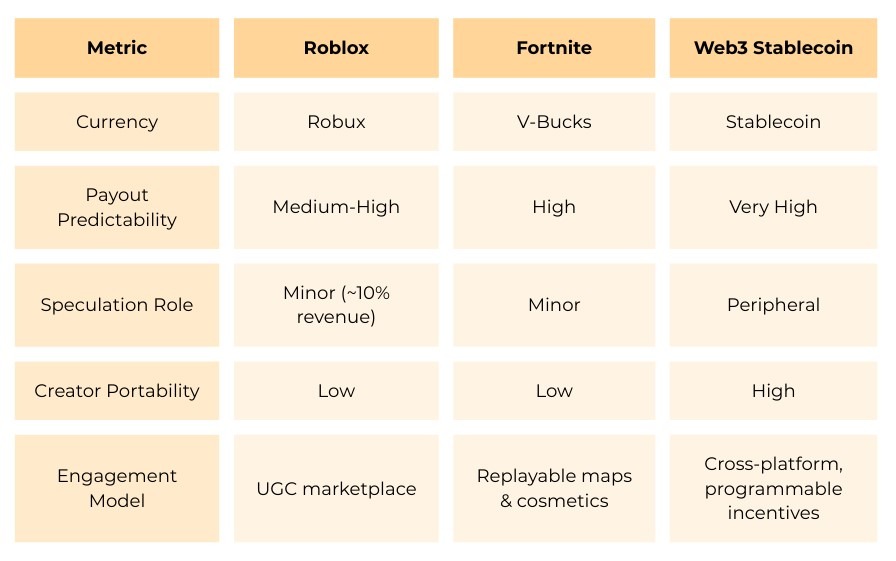
Stablecoins Emerge as Gaming’s Financial Backbone
A recent report from the Blockchain Gaming Alliance (BGA) sheds light on a significant shift within the $350 billion global gaming market. The study emphasizes the evolving role of stablecoins, specifically USDt (USDT) and USDC (USDC), as crucial infrastructure, replacing the volatility inherent in speculative tokens often used in play-to-earn (P2E) models. The report suggests a quiet revolution, as stablecoins transition from mere payment tools into the core economic engine that drives game development, creator payouts, item pricing, and player retention.

Stability Over Speculation: A Paradigm Shift
The BGA report frames the adoption of stablecoins as a direct response to the shortcomings of P2E models that rely on volatile, speculative tokens. Games like Axie Infinity, which experienced a dramatic decline in user numbers after their token values plummeted, illustrate the impact of financial instability on user engagement. Stablecoins, with their peg to fiat currencies, offer a vital layer of economic stability, eliminating the unpredictable fluctuations that can undermine in-game economies.
The Predictability Advantage for Developers and Players
By eliminating price volatility, stablecoins facilitate predictable payouts for developers and creators. This translates to more consistent revenue streams and enables seamless asset exchange across platforms. The report cites examples like Roblox and Fortnite, where closed-loop currencies have proven the value of stable valuation for user spending and creator incentives. The BGA noted that the top 10 Roblox creators earn approximately $38 million annually, made possible by fixed exchange rates that shield them from market shocks.
Stablecoins: Gaming’s Monetary Operating System
The report contends that stablecoins provide the reliability of fiat-backed systems with the transparency and programmability inherent in blockchain technology, offering developers a powerful new tool. This allows them to create systems designed to scale and put the player first. Amber Cortez, Head of Business Development at Sequence, is quoted in the report, stating: “Stablecoins are transforming fragmented, speculative game economies into scalable, player-first systems.”
Examples and Future Prospects
The potential of gaming-focused stablecoins is already taking shape. In May, the blockchain network Sui announced the upcoming release of Game Dollar, a programmable stablecoin specifically designed for the gaming ecosystem. This suggests a burgeoning trend of projects tailoring stablecoins to the unique requirements of the gaming industry.
The report’s release aligns with a recent resurgence of investment in the blockchain gaming sector. Q3 2025 saw a substantial $129 million in venture capital flowing into blockchain gaming, bringing the year’s total near $300 million according to DappRadar data, though lower than 2024’s $1.8 billion funding level. This financial backing suggests a growing belief in the long-term potential of blockchain gaming, fueled by the adoption of stablecoins as a cornerstone of its financial architecture. The shift towards stablecoins represents a crucial step in transforming the virtual economy, creating financial rails suitable for the open metaverse.



